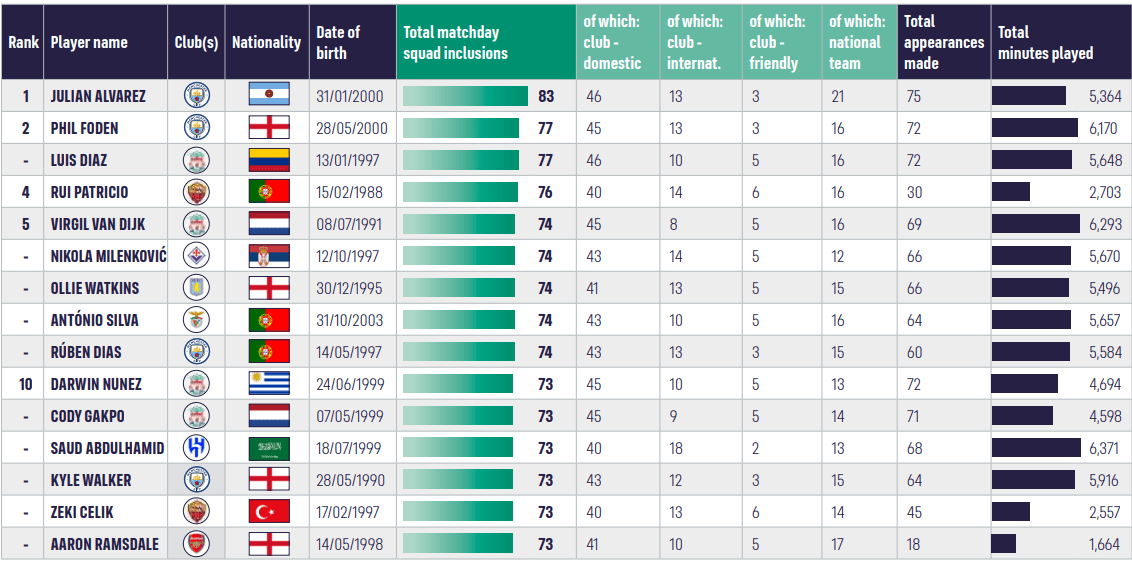
The soccer world is abuzz with rumors of a potential strike, as players express frustration over the increasingly packed fixture lists.
With new competitions and an ever-expanding calendar, some of football’s top stars are signaling that they’ve had enough.
The constant influx of matches is taking a toll on players. Rodri, ahead of a Champions League fixture, voiced the mounting concern.
“If this continues, we will have no choice,” Rodri declared, hinting at a possible strike.
The expansion of tournaments like the Nations League, the Club World Cup, and an extended Champions League has led to a saturated schedule, testing the patience of football’s elite.
Top players such as Julián Álvarez have already faced grueling schedules, with 75 matches across club and international duties last season.
This number is not unusual for leading footballers, who frequently juggle around 60 fixtures a year, including league games, cup matches, Champions League contests, and international fixtures.
This relentless schedule is contributing to rising injury rates and player fatigue.
Players are becoming increasingly frustrated
The frustration is shared by many in the football community. Barcelona’s Jules Kounde has suggested that a strike might be necessary to prompt action from decision-makers.
High-profile figures such as Pep Guardiola, Thibaut Courtois, Dani Carvajal, and Bernardo Silva have also voiced their dissatisfaction with the current scheduling demands.
In contrast, some players, like Juventus‘ Nico Gonzalez, have defended the busy calendar, arguing that young players benefit from increased game time and that proper rest and nutrition can help manage the physical strain.
The issue affects more than just the elite players. Many footballers, especially those not involved in European or international competitions, face a less demanding schedule, typically around 40 matches a season.
In Spain, for example, approximately 325 players are not engaged in European tournaments, highlighting a disparity between top players and others in the sport.
David Aganzo, president of the Spanish footballers’ union (AFE), has criticized the notion of reducing players’ wages in response to fewer games.
Instead, he advocates for improving the structure of competitions to ensure players can perform optimally without jeopardizing their health.
The ongoing debate underscores the need for a reassessment of football’s scheduling practices.
The contrast in minutes played by young players today versus past generations, such as Pedri compared to Sergio Busquets or Jude Bellingham versus David Beckham, reflects the evolving demands of the sport.
If the current trend continues, there are concerns about the long-term impact on players’ careers and the overall quality of the game.
As football faces these challenges, finding a balance between commercial interests and player welfare will be essential.
The sport’s governing bodies must address these concerns to maintain the integrity of the game and ensure the well-being of its players.

